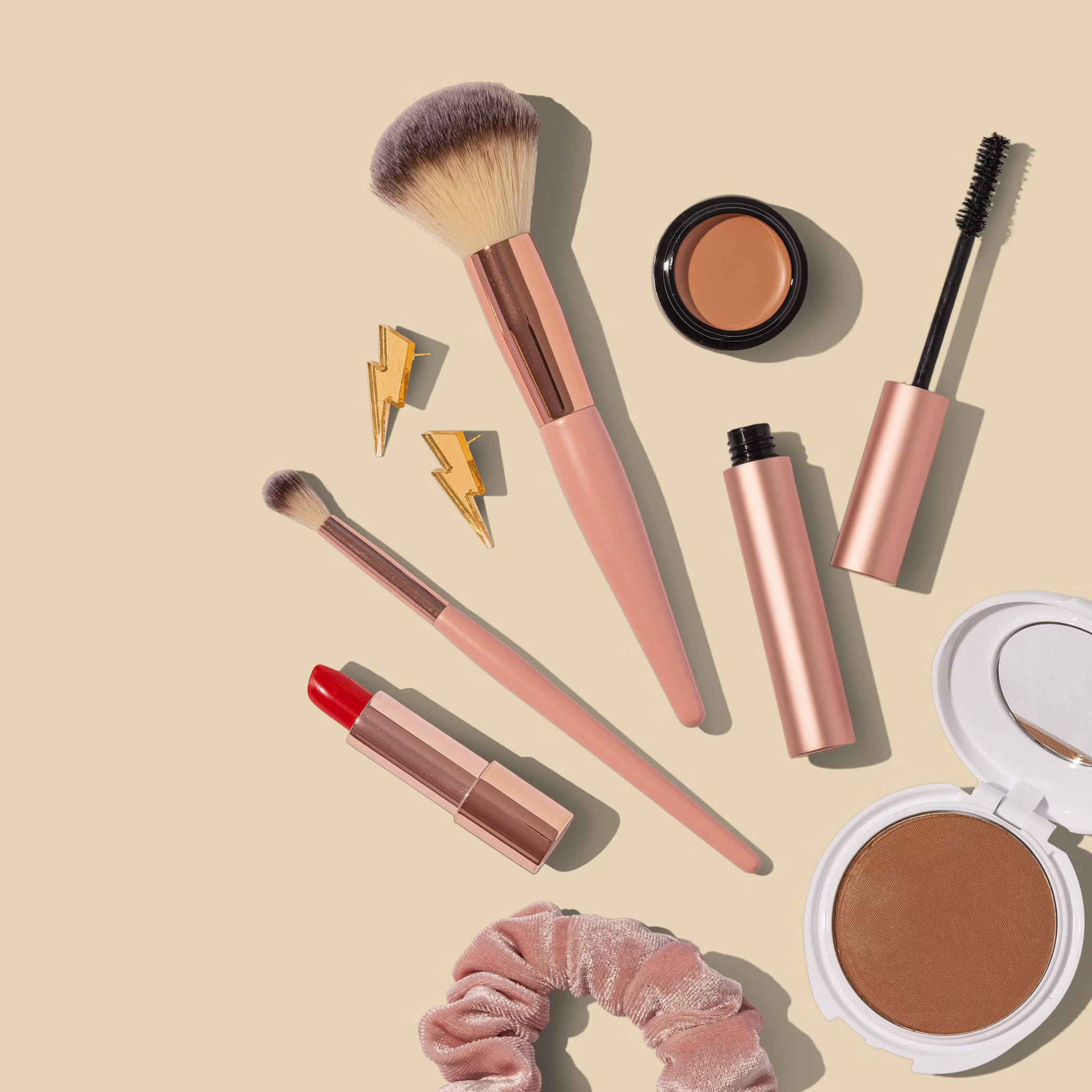Makeup for Eczema: Safe Beauty Tips for Sensitive Skin
Makeup can be a form of self-expression and confidence, but for those with eczema-prone skin, it can also be a source of stress. Eczema affects the skin barrier, making it sensitive to irritants often found in conventional cosmetics. However, with the right products and techniques, wearing makeup with eczema is entirely possible—and even enjoyable.

In this guide, we’ll walk through evidence-based advice, dermatologist-recommended ingredients, and best practices for using makeup without triggering an eczema flare. Whether you’re dealing with facial eczema or chronic sensitivity, this blog will help you build a skin-safe beauty routine that works.
Why Makeup Can Aggravate Eczema
Makeup products, especially those with fragrances, alcohols, or harsh preservatives, can worsen eczema by disrupting the skin barrier and triggering immune responses. A 2023 article on Dermsquared reported that cosmetic ingredients, particularly fragrances and preservatives, are common triggers for flares in patients with atopic dermatitis and contact dermatitis, underscoring the importance of ingredient awareness in skincare routines.
Common Culprits:
- Fragrances and dyes
- Preservatives like parabens and formaldehyde releasers
- Alcohol-based primers or setting sprays
- Heavy foundations with comedogenic oils
For eczema-prone skin, choosing the right ingredients is critical.
Makeup Routine for Eczema: Step-by-Step
1. Start with a Barrier-Friendly Moisturizer
Before applying any makeup, prep the skin with a moisturizer rich in ceramides and fatty acids. This strengthens the skin barrier and prevents penetration of irritants.
Recommended: NellaDerm’s NellaCare – formulated specifically for eczema-prone and sensitive skin. It’s fragrance-free, rich in ceramides, and ideal as a makeup base.
2. Use a Mineral-Based Primer (Optional)
Look for primers with zinc oxide or titanium dioxide, which double as physical sunscreens and are less likely to irritate the skin.
Pro tip: Skip silicone-heavy formulas if you notice clogged pores or irritation.
3. Choose Hypoallergenic Foundations and Concealers
The best makeup for eczema includes:
- Fragrance-free and non-comedogenic formulas
- Minimal ingredient lists
- Liquid or cream-based products (less drying than powders)
- Mineral makeup with zinc oxide or mica
4. Avoid Powder-Based Products During Flares
Powders can cling to dry patches and emphasize flaking, making the skin appear more irritated. If needed, lightly set oily areas with a small amount of translucent mineral powder using a clean, soft brush.
5. Eye Makeup: Choose Clean Formulas
Avoid waterproof mascaras and glitter eyeshadows during flares. For eyelid eczema, even hypoallergenic eye products should be patch tested first.
Look for ophthalmologist-tested mascaras labeled as suitable for sensitive eyes.
Safe Makeup Removal for Eczema-Prone Skin
Removing makeup improperly can undo all your good work.
Use a gentle, non-foaming cleanser and see the blog on eczema-friendly skincare routines. Follow up immediately with moisturizer using the 3-minute rule to seal in hydration.
Avoid:
- Makeup wipes (often contain alcohol and preservatives)
- Scrubbing or double-cleansing with harsh soaps
- Micellar water with fragrance
Tips to Minimize Irritation
- Clean makeup brushes weekly with fragrance-free soap
- Check expiry dates—expired products can cause allergic reactions
- Patch test new products behind your ear or jawline before full use
- Let the skin breathe—go makeup-free on calm days
Peer-Reviewed Insights
Several studies affirm the need for caution when applying cosmetics to compromised skin:
- This article in Journal of the American Academy of Dermatology emphasized a barrier-first approach and recommended that makeup for eczema should be paired with barrier-repair creams and minimized during active flares.
- Guin’s “Eyelid dermatitis: Experience in 203 cases” in Journal of the American Academy of Dermatology underscored the effect of makeup on the eye area.
This NIH publication highlighted that preservatives and fragrances in cosmetics are among the most frequent eczema triggers reported in patch testing.
Q&A: Makeup and Eczema
Q1: Can I wear foundation with eczema?
Yes, but only if your skin is not actively inflamed. Use a hypoallergenic, fragrance-free formula over a rich moisturizer or barrier cream.
Q2: Is mineral makeup better for eczema?
Often yes. Zinc oxide and titanium dioxide have anti-inflammatory properties and are less likely to irritate the skin.
Q3: What should I do if makeup causes a flare-up?
Stop all makeup use immediately. Use a gentle cleanser, apply an emollient cream like NellaDerm’s NovaNella Eczema Stick, and see a dermatologist if symptoms persist.
Q4: Are there any makeup brands made for eczema?
Yes. Brands like Avène, Toleriane (La Roche-Posay), and some mineral-based lines like BareMinerals offer eczema-safe products. Always check for dermatologist-tested and non-comedogenic labels.
Final Thoughts
Wearing makeup with eczema doesn’t have to be a painful compromise. With the right skincare foundation, clean ingredients, and expert tips, you can feel confident while keeping your skin calm. And remember—less is more. Prioritize hydration, patch test diligently, and don’t hesitate to go makeup-free when your skin needs it.
For a deeper dive into eczema-safe skincare and product guides, explore our Eczema Knowledge Hub for science-backed resources and dermatologist-approved tips.
Our Promise to You
We’re confident our products will transform your skin—but if you’re not completely satisfied, we’ve got your back. Simple as that. Try our products risk-free for 30 days. If you don’t love your results, reach out to our care team and we’ll make it right with a full refund. No questions asked, no complicated returns process. Because everyone deserves skincare that works.

